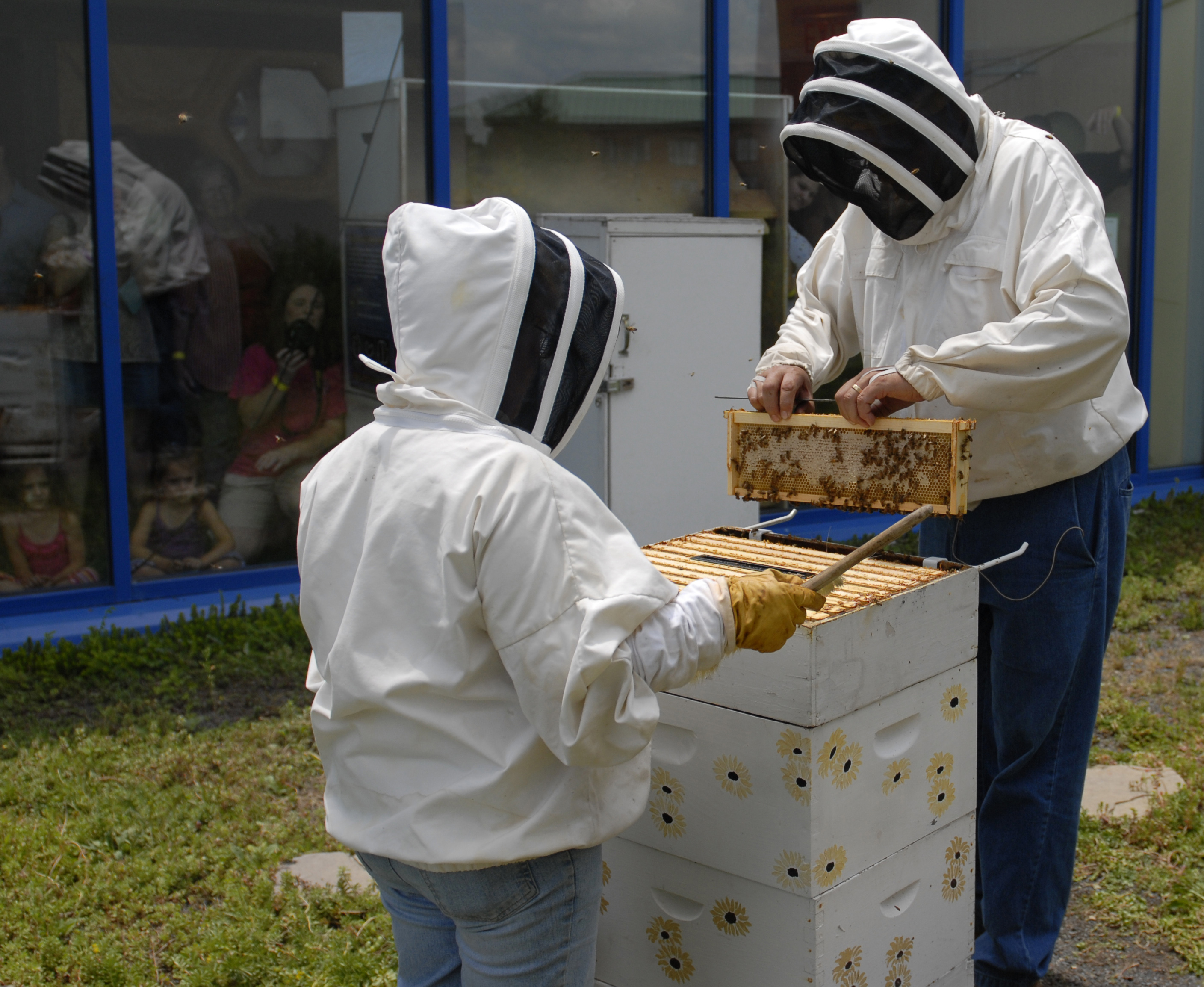It's a sweet weekend at Chattanooga's Creative Discovery Museum
Friday, January 1, 1904
 Beekeepers Phyllis and David Reed perform a beekeeping demonstration at the Creative Discovery Museum's 12th annual Honey Harvest on Saturday, July 28, 2012, in Chattanooga, Tenn. The Honey Harvest is an interactive celebration of honey bees that allows guests to learn about the work of the bees and how honey is made.
Beekeepers Phyllis and David Reed perform a beekeeping demonstration at the Creative Discovery Museum's 12th annual Honey Harvest on Saturday, July 28, 2012, in Chattanooga, Tenn. The Honey Harvest is an interactive celebration of honey bees that allows guests to learn about the work of the bees and how honey is made.IF YOU GOWhere: Creative Discovery Museum, 321 Chestnut St.When: Noon to 4 p.m. todayAdmission: $11.95 per personWebsite: www.cdmfun.orgPhone: 423-756-2738.
Ten-year-old Wyatt Mustard's favorite flavor of honey is pine. Not acacia, not sourwood, not lavender or orange blossom or clover. Pine.
He knows pine is his favorite honey because he tasted 11 flavors at the Creative Discovery Museum on Saturday during the museum's annual honey harvest.
"It had a really weird and good taste," he said. "All the other ones were kind of different, and they didn't taste very good."
The honey harvest is a two-day event that focuses on the many different aspects of honeybees. Museum visitors can participate in a wide variety of bee-centered activities this weekend.
"I made soap, lip balm and a candle," Wyatt said.
Museum Experience Manager Karen Dewhirst said guests also can watch honey being extracted, talk with beekeepers, look into a beehive and use beeswax as glue to make collages.
"Everything that they do here is hands-on learning," she said. "They get to taste the honey; they feel the stickiness; they smell it. Anytime you can involve all of the senses in a learning experience, you retain a much better memory of it."
Dewhirst estimated about 1,500 people attended the exhibits Saturday. Nicole Campione brought her three children to the exhibits as part of a family vacation.
"It's fabulous," she said. "We've been to the New Orleans children's museum, and this tops that, in my opinion."
One of the goals of the two-day event is to show children that bees aren't scary, Dewhirst said.
"The children get to see people interacting with bees, and they can see that it is perfectly safe to be around bees," she said. "And even if you get stung, it's not a life-threatening thing."
Jason Groppel, Middle Tennessee vice president of the Tennessee Beekeeping Association, performed a honey extraction demonstration for guests Saturday. He said he wants people to know that bees usually sting only as a last resort.
"Most of the time, bees will warn you before they sting you," he said. "If you are out near a hive and they feel threatened, they usually will fly up to you and give you a head-butt before stinging you. It's like, 'Hey, buddy, back up.'"